Photographs: Arko Datta/Reuters Sheela Bhatt
Were they Indians?
They were Indians. But what does that mean?
Who told you this?
On the Pakistan side...
That they were...
That they were working with 10 local people.
Adrian Levy, co-author of the book The Siege: The Attack on the Taj, speaks to Rediff.com's Sheela Bhatt in a compelling interview.
In the first part of the exclusive interview, Levy revealed how America's compromise with David Coleman Headley, one of the masterminds of the attacks, affected India's national interest.
Part I: 26/11: 'America sacrificed Mumbai to keep Headley playing'
In the second part, he speaks of the 26/11 conspiracy, how Ajmal Kasab and the other nine terrorists we picked and trained, the mysterious Honeybee and possible local help for the terrorists in Mumbai.
26/11 Exclusive: How the LeT chose Kasab and who Honeybee could be
This is the third and final part of the interview:
Was it an Inter Services Intelligence operation?
The ISI is very different to most intelligence outfits, in that it has a broad loosely knit community that have different functions within it. And the counter-insurgency, that is the counter-India function that deals with jihad, is staffed by long timers who can be at the top level for 20, 30 years. And they are known on both sides, by (India's) Research and Analysis Wing and by the Intelligence Bureau and in certain cases in the Kashmir valley, by their code names, their radio call names.
And those people are no longer controlled by anyone. They have their vested interests. What one can say without any doubt is that some of those players, some of those senior agency (ISI) people, they were on the peripheries of that plan. They knew what was happening, who was involved, they knew David Headley.
He was given training; he was given the equivalent of non-commission officer training by the ISI, which was a compact course that ran for months in Lahore. And that training was a condensed version of what the ISI gives for first two years to new recruits inducted from the army.
And in video interviews Headley describes the process of that training. And he describes it brilliantly, clearly.
He was taught intelligence gathering, surveillance, counter-surveillance, technological training, secure communication, classic tradecraft of the ISI condensed down from two years to nine months. He was assigned to help the LeT.
We know that in Karachi, different people were 'satellite-ing' around the group, who also had very clear connections to the ISI. What is harder to say is: Where is the chain of command? See that is what the ISI did brilliantly. It's not visible.
And what do you think of the civilian government in Pakistan? Did it have prior knowledge?
None. I mean the Pakistani foreign secretary was holed up in a hotel in New Delhi. And in fact senior civil servants from India were on an exchange in Islamabad and no one could get a flight home. I have spoken to all those civil groups. I absolutely believe that they did not have an inkling and were horrified.
They guessed it was the Lashkar because the thing is that that operation required discipline and there are only few groups that had the internal discipline to bring off an operation like that.
Buy The Siege: The Attack on the Tajhere
Please ...
'Anyone saying Saeed was in the control room don't know what they're talking about'
Image: Lashkar-e-Tayiba founder Mohammad Saeed, the alleged mastermind of the 2008 Mumbai terror attacks.Photographs: Fayaz Aziz/Reuters Sheela Bhatt
Tell me, how strong is the LeT?
Well, they were very strong because of the move to Al Qaeda. Two things are very significant here. By about 2007 they had evolved as a result of the split within the LeT, an element within the Lashkar had evolved a foreign operations wing.
That wing was gathering force in Britain, which was the headquarters. It was raising money and recruits in France and Germany. It was planning attacks in Australia against military targets. And they had begun doing this in 2002.
And one of these plots had been disrupted very successfully by French intelligence. They gained an insight into Lashkar's foreign wing, it was no longer just Kashmir. And they began to work with Scotland Yard's anti-terrorism squad in the UK looking at the Lashkar raising funds in London in Birmingham and in cities in the Midlands in the north through mosques.
They compiled all of this into a report. A very detailed dossier was dispatched with the backing of France and Britain to the Americans in 2007. And what the dossier said was that Lashkar has evolved. And it is no longer the jihad front that is the bastard child of the ISI.
The Lashkar is becoming something else now. It is basically a kind of Al Qaeda affiliate. Its targets are global. Its targets are now Western-Jewish broadly as well as anti-Indian. And they will strike at something...
What is Hafiz Saeed's involvement in the Mumbai attacks?
He's a fantastically astute and clever operator. And anyone who tells you, for example that Sayeed was in the control room in Karachi, they don't know what they are talking about.
When you have that internal discipline, you never put your leader in the firing line. Anyone who told you that Zaki-ur Rehman Lakhwi was in the control room, they don't know what they are talking about. This is just propaganda.
The people in the control room are the people who felt they could give something on that day. They had a hold over the ten men. Psychologically, they could drive them on when they were tired, they could stop them being scared, they had a knowledge of Mumbai... they had a specific role.
In a complex situation like that, why do you bring a weight that you have to carry into a room? You don't. The organisation protects itself. So everything you read about the cross examination of Ajmal Kasab telling you Saeed was in the room or Pervez Musharraf was in the room, this is wishful thinking.
Do you think Saeed is guilty?
I think the organisation is run by a central shoura that discusses everything. I think it is highly unlikely that anyone in the organisation, in the central council doesn't know what is going on. They know what is going on.
Please ...
'10 local collaborators supplemented the information provided by Headley'
Image: David Headley shot a photograph of the landing site in Mumbai which he chose for the 26/11 Pakistani terrorists, released by the US Attorney's office.Photographs: Reuters Sheela Bhatt
Do you think the entire operation was done without any local help?
That is very hard. Because, first of all you have got this factor of the Honeybee agent in Delhi. And there is also the other group, they are called the mice (chuhe). And they were a group of people who provided information which was very closely observed in Mumbai, they supplemented the information provided by Headley.
They were named at various times as having provided the suggestion for landing sites, suggestion of how the police pickets worked with times for the change over in Colaba. So there does seem to have been collaboration from a small group.
Does that mean there is an LeT unit working in Mumbai? I don't think it necessarily means that. I think they definitely refer to two persons.
Persons who give suggestions for the landing...
Yes, they are working for LeT.
Such an important issue!
They said they had 10 collaborators working in Mumbai. There is very little evidence on what that really means.
Were they Indians?
They were Indians. But what does that mean?
Who told you this?
On the Pakistan side...
That they were...
That they were working with 10 local people.
Are you very sure about chuhe?
Yes. So if we are told these pieces of information, is this not what a commission after 26/11 should be examining?
All the things that you have raised are questions for a commission that were never asked, never answered. There must be people now who must be sitting on these truths who are ready to talk.
Please ...
'Was 26/11 successful from LeT's point of view?'
Image: Policemen stand guard outside the Taj Mahal hotel, one of the sites of the 26/11 attacks in Mumbai.Photographs: Punit Paranjpe/Reuters Sheela Bhatt
Do you want to say that Kasab's interrogation was not fruitful?
Can I put it in a slightly different way? Little less bold. They came to know some detail from Kasab, it confirmed what they could see before their eyes.
It confirmed the number of people involved, the methodology of the outfit, that it was an LeT operation and that is simply all it confirmed.
The other bits that have been bolted out afterwards... I think more was suspected when Headley began to be interrogated by the NIA (India's National Investigation Agency) and the NIA documents came forward then with certain information which began to prompt a new line of inquiry. There was internal revision within the IB and R&AW and they began to do the job they should have done the first time round.
Do you think the NIA interrogation of Headley in America was fruitful?
I think it was partially good. Headley is dependant on a relationship. Headley is a people pleaser. And you know if they had the access that the FBI (Federal Bureau of Investigation) had -- the FBI had hundreds of hours with Headley -- they would know that he needs to be pleased, to be rewarded, he gives you things.
The NIA had 2, 3 days and what they did at that time had limited information. There are lots of things in that NIA report that are wrong.
Information that they have written is wrong. Information that Headley either gave them is wrong or they have written it wrong. And what is really interesting about the NIA report is that the full version of their interview, some of the information in there, it is just full of the same thing that has happened with the Sayed Zakiuddin Ansari (Abu Jundal) situation.
They are looking to create their scapegoats in the report. So they need to make the most of the stuff they have.
This information given by Headley, he obviously cares very little for the interrogators. He lies about all the addresses where he lives, he lies about who his relatives are. He gives them addresses that don't exist.
Did Headley give the NIA details of the local people who helped him?
He did not. He gave them, I think, a fairly clear idea of his involvement and the evolution of that, and he gave them a lot of untruths about what was going on in Pakistan that suited the NIA agenda.
That is why lot of stories hereafter say how Hafiz Saeed planned 26/11.
So according to you, the LeT's operation was super successful.
In one way I do think that it was super successful. This operation achieved what it wanted to, they knew what to expect, they managed to do what they wanted to do for three-and-a-half days.
They made Mumbai burn. The security services's response was pitiful until the National Security Guard arrived. Once they arrived they did what they could.
But ultimately is that successful from the LeT's point of view? The reason I raise that is because the political backlash was enormous. And the result is that the LeT was severely disrupted.
So now the people who were really useful and important to the LeT, a lot of them have to keep a very low profile. Their operations are being choked.
What is the deeper impact of the Mumbai attacks on Pakistan society?
Well, this is interesting. I have observed two things. Initially, there was a huge amount of horror in Pakistan at what had happened. People recoiled because of the Al Qaeda nature of the attack. The wanton killing of innocent people at the VT (Chhatrapati Shivaji Terminus) station. And because we could listen in to the command centre for the first time.
The coaching of the gunmen over mobile phone. 'You kill her, you kill her now,' the guiding of the gunmen into slaughtering the Jews at the Jewish centre and the hunting down of Indian guests at the Taj -- that repels everyone.
People in Pakistan were terrified, is this what we have become? But then the political war that happened afterwards, that engulfed 26/11, the tit for tat over who would investigate, who would supply evidence, the differences in domestic law in India and Pakistan, that made everything so complicated; that began to create a huge amount of fatigue.
It is a terrible thing now. Because no great report ever came out in India. No great book was ever written. You talk to someone clever in Lahore, and you ask what about 26/11, and they say don't talk about that, I can't listen to that anymore, we lost more people than that in a year of suicide bombing. We lost 3,000 people.
So there is this fatigue and that is because of a lack of political development.
Please ...
'Anyone who says 26/11 is the final full stop on the India-Pakistan story has no understanding of history'
Image: 'A sectarian Pakistan that is no one's friend? That can only cripple India,' says Adrian Levy, co-author of the book The Siege: The Attack on the Taj.Sheela Bhatt
As you said, it took four years to write the book. While doing this book, when did you or your co-author feel a chill in your bones?
I think the stories of individuals. One thing we have done in this book is that we have made it a book for as wide an audience as possible. To create a testament to 26/11 so there are a lot of stories here from the perspectives of the people who endured, who died and who fought.
And their stories which we want people to identify with. So that we don't forget about 26/11 and I think actually those people are allowing us through multiple interviews into their lives. That and putting together the jigsaw of saying who was in what room. That puts you into the cockpit.
For the first time you can actually see what it is like to be in a situation like that. And it is not a television broadcast. It is not about the gung-ho war reporter. It is about the fear that is created and the triumph.
I and Cathy did different things. We have different ways of working. She is an extremely frenzied organiser of facts. She can take a dizzying number of facts, interviews and raw data and take meaning from it. She is extremely good at that.
And I create clutter. What I do is I get huge amounts of information and I make her job much harder and then she finds people she would like to drive that data forward, real people, whose stories are extraordinary.
And then I will go with those people and sit for hours and hours and listen. And so without different skills, different ways of working, you couldn't do it.
I am quite chaotic, and she is not in the slightest. My desk is full of paper, hers is empty. I like to be surrounded by my information, my photographs, my video clips, everything's there for me.
Her is the B Raman philosophy (the late Rediff.com contributor who often wrote columns in bullet points). Her paragraphs are numbered. And she approaches things from the known ends.
How did you manage to interview so many people in Pakistan?
Well, a lot of people want to talk. The other factor is if you don't ask, you don't get. So people censor themselves.
Has the Mumbai attacks changed the ISI culture?
I don't know whether you can say that. I think there is an ongoing debate about what good the jihad factory has done for Pakistan. And that has almost reached a peak. There is a lot of soul searching going around about de-radicalisation within the ISI and within the Pakistan military.
It is on everyone's lips -- how do we put the Pandora back in the box? How do we close the lid? Because it is killing them and they cannot cope with it anymore.
The government will tell you that they are considering a peace treaty with the hardliners.
In India there is a political divide. One section doesn't want to forget 26/11, another section wants to forget and forgive so that India can move on with Pakistan. What do you think of this political divide?
I understand entirely how deeply these feelings are felt. The scale of the attack, the scope of its sponsorship, the sophistication of it, these are all things that need to be analysed. But whether or not, that means you freeze the relationship, you freeze the border...
Someone very senior in your government said to me, 'We build a big wall, that's what the Jews did. That's what we need to do, build a really big wall between India and Pakistan. Let Pakistan implode. It won't be our problem, we'll control it.'
I wanted to say to this man, how crazy to build a wall and let them die. If Pakistan collapses, the region collapses. What will happen after the chaos? What factions will take over with their nuclear arsenals? A weak Pakistan? A sectarian Pakistan that is no one's friend? That can only cripple India.
And however unpopular the few Indians may be actually, they are trying to think out of the box, trying to work out who the factions are you can trust and develop. Trying to work out what actually succeeds and what doesn't and not just listening to the hawkish voices.
Pakistan is at a junction. They have succeeded in passing the baton from the Pakistan People's Party to the Pakistan Muslim League. There is a new realignment between the military and the civilians. It is not perfect, it is superficial.
But things are interesting in the way they are developing. It is economically weak. It's facing its internal war with the jihad factory and what role does India want to play in that?
Do we want to build the wall? How successful has that been in Israel? Yes, it has stopped suicide bombings in Tel Aviv. The bus bombs they stopped. But Palestine is a festering swamp.
And out of that swamp came Hamas, a political organisation. Is that what you want? You want to grow more Al Qaedas? It doesn't make sense. So anyone who says that 26/11 is the final full stop on the India-Pakistan story has no understanding of history.
They are thinking with their heart. The key in all of these issues as a country is to think with your head. We have to accept unpopular decisions.
Why did the British government -- a conservative, right-wing, nationalist government -- talk to the IRA (Irish Republican Army)? Why? I know that we are a tiny fairly insignificant country of fairly 66 million people, but the point is that secret back channel was very important to us.
Please ...
'Honesty is something that governments and establishments here are bad at'
Image: Residents hold candles during a vigil held for 26/11 victims.Photographs: Reuters Sheela Bhatt
How do you see the future of Pakistan with reference to this jihadi terrorism?
They have created a monster. And the biggest problem is that it is affecting generations. It is such a complex thing. And their attempts at providing semi-solutions... they require a very firm political leadership, a lot more stability. I don't know whether anyone really has the heart to do it at the moment.
There are lots of side issues. Will there be a military campaign in Waziristan? Why would they do that? They have already lost thousands of soldiers. They can't win in Waziristan. Why would they go and do that? One thing they need to work out is how to mount an operation that brings people back into the fold.
How did Indonesia do it? Indonesia was facing a massive problem and could have become the home country to Al Qaeda after the Bali bombings. Saudi Arabia did it in a very authoritative way. But Pakistan needs to find its own flavour for de-radicalisation.
But I can tell you that this is the debate in the military and in intelligence establishments, with real seriousness. What will we do? How will we do? And they have got lots of ideas.
People who say that they don't care and it works in Pakistan's favour are not believed. They know it doesn't work in their favour. They absolutely know that every one of those suicide bombs makes them ache. They created it and it is destroying them.
What are the lessons you would advise India to learn?
I am not going to go down that line because as you know I am a writer and a government's job is to govern. But, one thing that I learn from reading this and 9/11 is honesty.
Honesty is something that governments and establishments here are bad at -- because honesty seems like weakness.
To actually not tell the truth is a big mistake because you cannot have a proper post-mortem, and that can be an inclusive process, there can be no healing.
Some Indians say never befriend Pakistan. Then there is no healing. There is no truth because no one wants to actually pay the political price.
What happened to the people who allowed this to happen? One home minister who changed his clothes too often lost his job. Who else? They are all there in their bungalows. What happened within the government?
Why was the IB's 4,500 officers short? R&AW had made many requests for equipment and for analytic strength, which were denied. Why? Why is it being run into the ground and then blamed?
You cannot treat them like that and then blame them. Finally, don't put forward proposals that you are not prepared to use.
The Pradhan Commission report is a mockery. There is money in India. There are more brilliant minds than anywhere. The brain, the brawn, the heart, the history and because of that Indians deserve the truth.

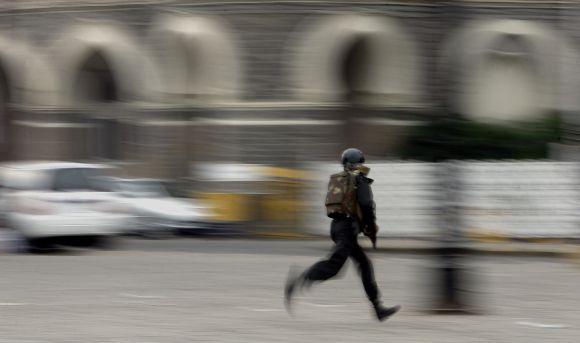
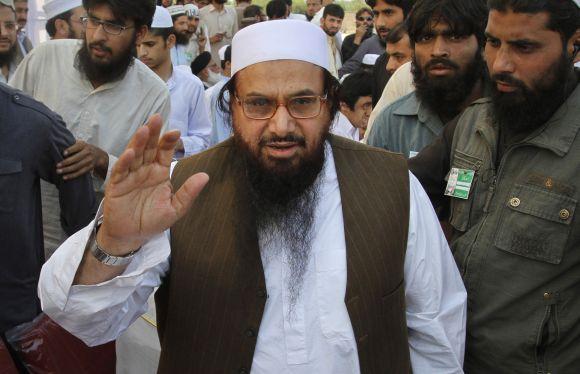
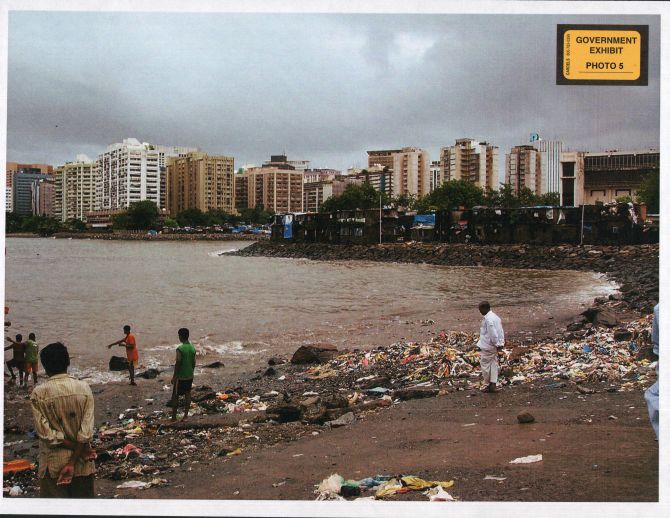
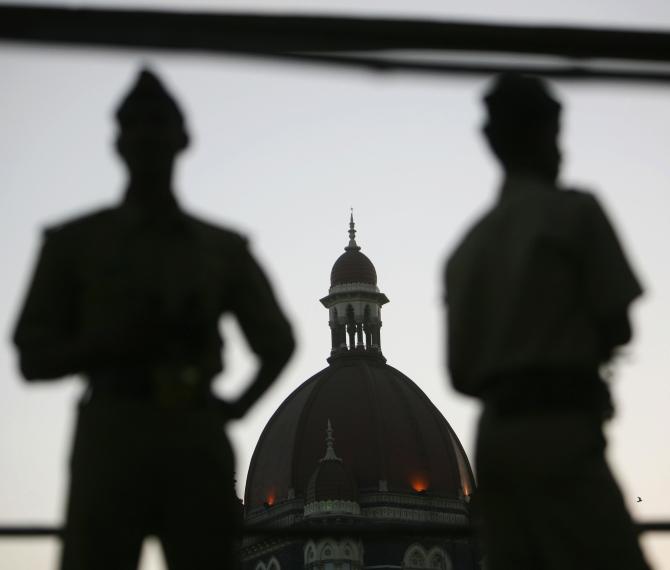
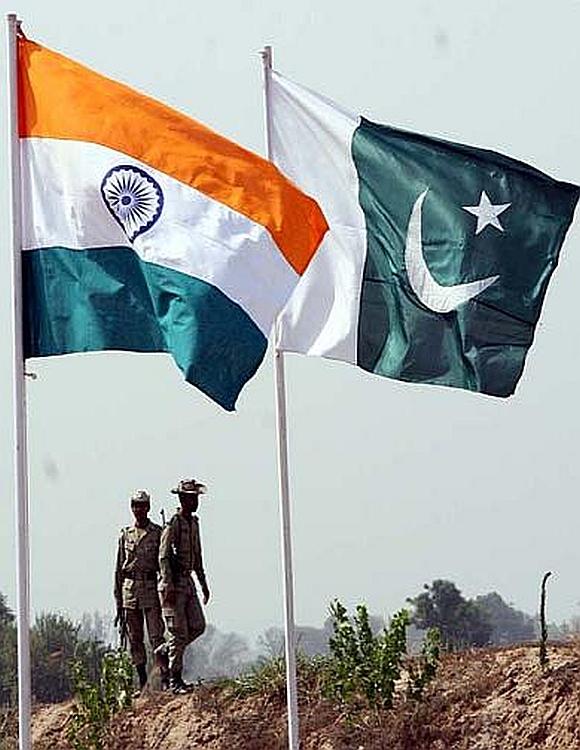
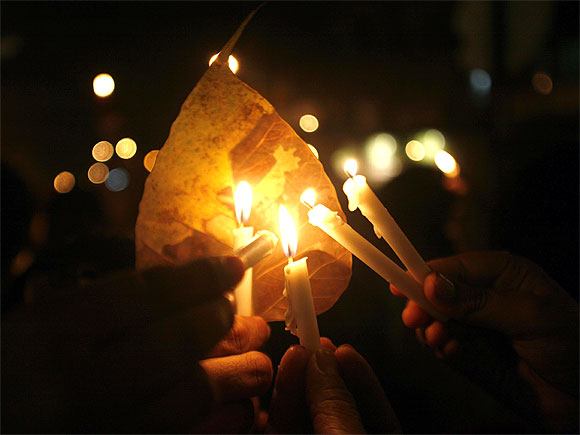
article